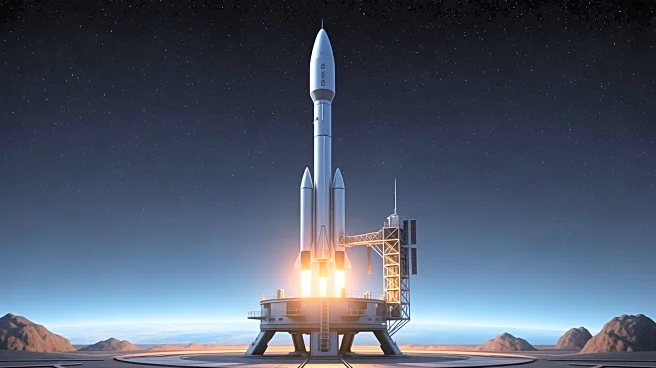What's Happening?
China is preparing to launch the Shenzhou 21 crew to the Tiangong space station using the Long March 2F rocket. The launch will take place from the Jiuquan Satellite Launch Center. This mission is part of China's ongoing efforts to expand its presence
in space and further develop its space station capabilities. The Long March 2F rocket is a key component of China's space program, designed to transport astronauts and cargo to the Tiangong space station, which serves as a hub for scientific research and international collaboration.
Why It's Important?
The launch of the Shenzhou 21 crew is significant as it underscores China's growing capabilities in space exploration and its commitment to establishing a permanent presence in orbit. This mission contributes to China's strategic goals of advancing its technological prowess and enhancing its status as a major player in the global space race. The successful deployment of the crew to the Tiangong space station will enable further scientific research and experimentation, potentially leading to breakthroughs in various fields such as materials science, biology, and astronomy. Additionally, China's advancements in space technology may influence geopolitical dynamics, as other nations assess their own space programs in response.
What's Next?
Following the launch, the Shenzhou 21 crew will conduct various scientific experiments and maintenance tasks aboard the Tiangong space station. The mission is expected to last several months, during which the crew will contribute to ongoing research initiatives. China's space agency will continue to monitor the mission's progress and ensure the safety and success of the crew's activities. Future missions are likely to focus on expanding the space station's capabilities and fostering international partnerships for collaborative research projects.
Beyond the Headlines
China's space program raises questions about international cooperation and competition in space exploration. As China continues to develop its space capabilities, other countries may seek to collaborate or compete, potentially leading to new alliances or tensions. The ethical implications of space exploration, such as resource allocation and environmental impact, may also become more prominent as more nations pursue ambitious space missions.

















